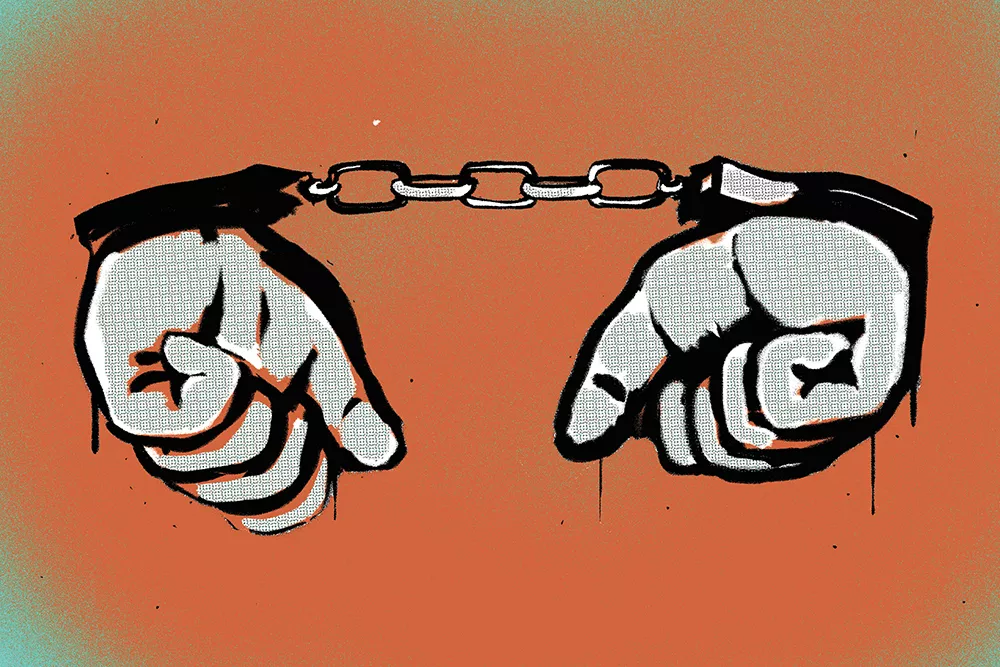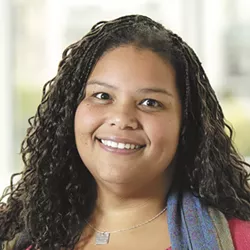When I was 13, I met a boy. We connected during rehearsals for You're a Good Man, Charlie Brown. He was Pigpen. I was Veronica. Over the next decades, I came to know and love this man, though I wouldn't ever say I fully understood him. He was fiercely loyal to family yet never at home, incessantly restless. He viewed the world uniquely, walking it aberrantly. An old soul meandering hours away while listening to classics from bygone days — artists like Cash, Creedence, Dylan, the Dead, the Band, Elton and Aretha. He possessed a distinct tenderness but often kept it locked away. A man at odds with our present-day isolation, the darkness of modernity contrasting with his desire to believe in the light of the world. He often complained about how my cell phone disconnected us. He refused to own one.
Society's discomfort with nonconformity led to an early diagnosis, labeling and prescription pills — like Adderall and Ritalin — disquieting drugs lacking methods for curing, only quelling. We watched, feeling helpless, as frightening new addictions morphed into destructive old habits. As he grew, so did his propensity for trouble, but around 30, a weariness seemed to settle in.
When I told him my momma was dying, he slowed enough to come alongside. One evening, after devouring a delicious meal he made for us, he surprised me with an apology. The sorrow that welled beneath his words was so thick it still lingers. He grieved about failing his family, his community, me. He mourned for the man he wanted to be. He lamented over barriers — both ahead and behind — the loss of a job when companies learned of his convictions, his lack of access to voting, housing or loans for education. Though he had done his time, he felt forever shackled to past mistakes, burdened and a burden. Sadly, a few months later, he choose the only path he envisioned existed, exiting our world.
I tell Judd's story because by virtue of his passing, his burden has been passed. I tell it because collectively we determine how it progresses. But mostly, I tell his story because if as Dostoevsky writes "the degree of civilization in a society can be judged by entering its prisons," then we ought consider how we measure.
Currently, our nation leads the world in incarceration. We make up only 5 percent of the planet's population but hold 22 percent of all imprisoned. Most are unaware but a multi-week nationwide prison strike, with a list of demands, requesting basic human rights, just wrapped up.
This story also hits close to home. Our jail is overcapacity, brimming with people suffering from mental health and substance abuse issues (80 percent). We have laws that criminalize those experiencing homelessness. Despite a $1.75 million grant and intensive strategic planning to reduce incarceration, our jail population has increased by 10 percent. During the last 20 years, 18 deaths occurred in our jail — eight within the last 15 months.
We pay for this. Seventy percent of our county budget and over $43 billion nationwide fund our antiquated, retributive system. Instead of focusing on reducing recidivism through prevention (addressing root causes of crime, holistically with evidence-based practices), we perpetuate the hegemonic "tough-on-crime" myth. We enable a punitive, dehumanizing approach that strips people's agency and dignity, yet we expect better. We conflate punishment with meaningful accountability. We neglect to provide worthwhile re-entry opportunities, necessary for 95 percent of formerly incarcerated who rejoin us.
I tell Judd's story because it's our system, not the people within it, that's broken. I tell it because we desperately need a new one. But mostly, I tell his story because I miss him. ♦
Inga N. Laurent is a local legal educator and a Fulbright scholar. She is deeply curious about the world and its constructs, and delights in uncovering common points of connection that unite our shared but unique human experiences.


















